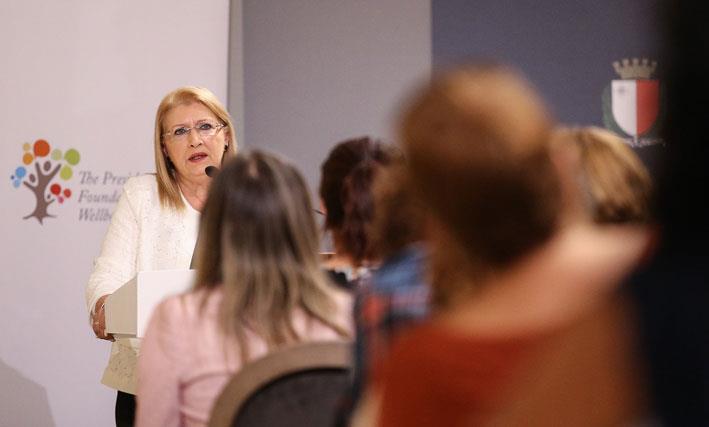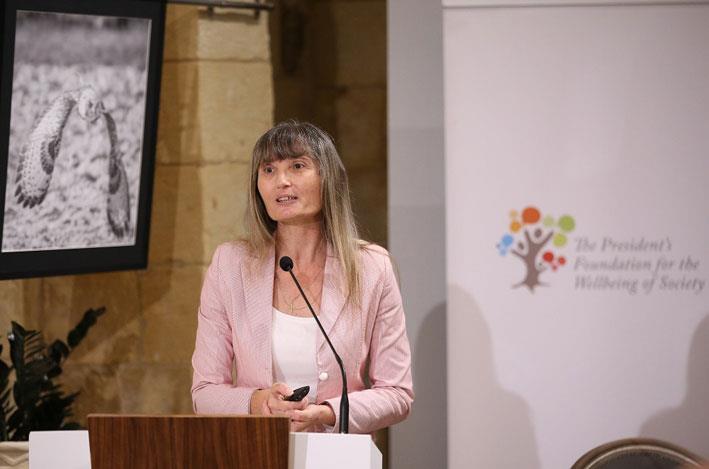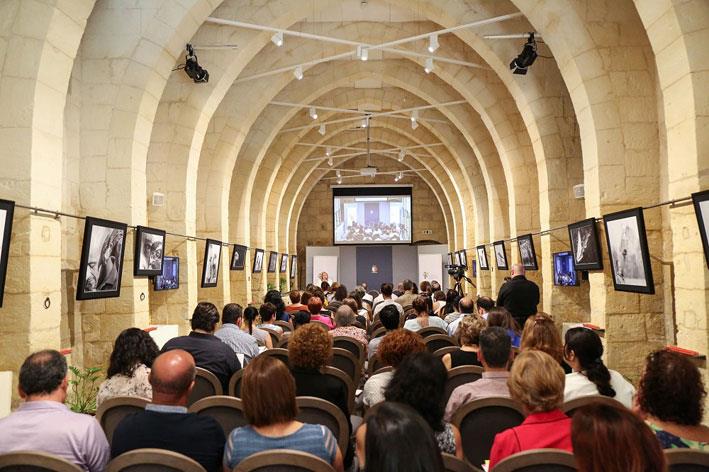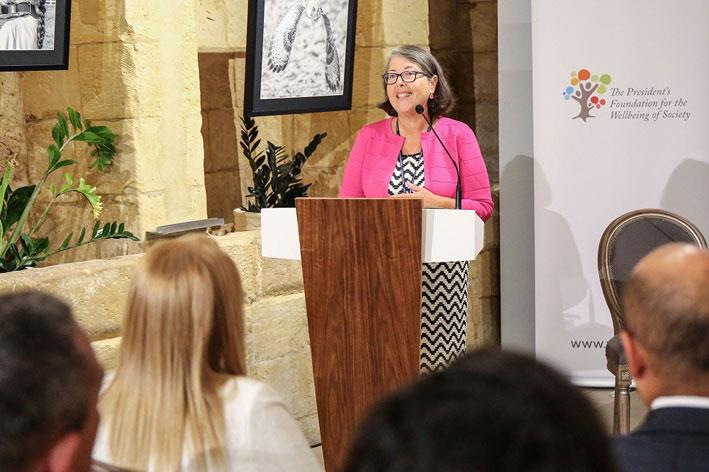President Marie-Louise Coleiro Preca highlighted the issues faced some families when it comes to eating healthy food while delivering her speech at the presentation of a study called ‘’Access to Healthy Living and Fair Food.’’
The President spoke of one of the main indicators of this study, which states that food is the largest expense which a family of four has. The research states that, a family of four needs to spend more than €500 monthly to eat healthy food. It also resulted that, this expense negatively affects the access to healthy food for a number of families. “This means that these families are at risk of suffering vulnerabilities and of living in a precarious situation,”a statement by the President read.
President Coleiro Preca also said that the food we eat impacts the quality of life, and the life expectancy of each individual. She also referred to other indicators which result from other research studies, such as the high obesity rate in Malta and the fact that cardiovascular diseases are the cause of half of the deaths in Malta. These indicators show that the issue of access to healthy, clean and fair food, is an issue of paramount importance, in achieving social justice.
The report was published by the National Observatory with Living with Dignity and the National Centre for Family Research, within the President’s Foundation for the Wellbeing of Society,
The President said, in the foreward of the report, that recent statistics show that 60% of the adult population in Malta is either pre-obese or obese, “this being the highest rate among the EU member states. She explained that initiatives for people to adopt a healthier lifestyle are rightfully encouraged, “yet it is simultaneously important to contextualise this approach and acknowledge that opportunities to make healthy food choices are not equally available.”

She explained that various studies show that those coming from a lower socio-economic background are at a greater risk of suffering from poor physical and mental health, and that families with lower socio-economic status have a propensity to consume more energy-dense foods than their higher income counterparts.
The President says that 25,893 people in Malta, according to a survey, cannot afford a meal with meat, chicken, fish or a vegetarian equivalent every second day, “potentially compromising the nutritional health and wellbeing of a significant proportion of the population.”
She stressed the need to find a way to ensure that people’s basic human rights are respected at their most fundamental level, and that no person is robbed of the opportunity to make positive choices for their own wellbeing.
The main research question for the study was: Can good quality, healthy and clean food be also fair, i.e. at a price accessible to low income consumers, without compromising on fair conditions and a decent pay for producers. (clean food refers to sustainable foods that are less artificial and processed, are environmentally- friendly, consider ethics in their production, as well as having positive psychological impacts on the consume)

The study explains that Malta’s food system (all aspects of production, management, consumption and propagation of food) was influenced by its size. The study explains that the majority of food is imported, and exportation of local food products is minimal. It explains that this has a negative effect on the food system, and that the number of full-time farmers is decreasing.
The study also highlights that Malta moved away from the Mediterranean diet, and that unhealthy foods have become increasingly available.
The study, which included a survey with Maltese participants, saw the majority of interviewees perceive healthy, clean and fair (HCF) foods and the option of having a choice of foods, as being restricted to the middle and upper classes.
The study also states that focus groups revealed that farmers feel largely isolated from the national food discussion and believe that the vast proportion of the public view them negatively. Most farmers agreed that there is a clear disconnect, with many consumers having lost touch with the value of the foods farmers grow and the visible and hidden work involved in its production.
The study found that consumers are increasingly relying on certification labels rather than speaking to growers or producers, thus creating a problem as it puts smallholders and service providers who cannot afford certifications at a disadvantage.

In addition, the study found that a heightened intellectual debate has removed farmers from the table with the media on agricultural issues. It highlights that the disconnect between people who grow foods and consumers led to misconceptions of agricultural practices and mistrust.
The report concludes that current and past food and health-related policies seem to have been partially successful, in relation to food provision, knowledge and behaviour, yet their remit has been restricted with respect to food system changes.” The report recommends that further research be conducted on, among other things, local agriculture and its commercial potential,
The study also recommends the setting up of additional farmers markets in more strategic localities around Malta, to help increase exposure of local healthy clean and fair (HCF) foods.
It also highlights the lack of outreach and incentives to help support small Maltese farmers who cannot access EU funds, and who could be aided by subsidies and measures set up by government.

It found that a specific policy is being blamed for hindering restaurants and food provision industries from providing HCF food at accessible prices – the 18% VAT attached on these establishments. The report also recommends that government consider giving vouchers which can be exchanged for fresh vegetables and fruits from farmers markets, or fresh fish from local fisherfolk/vendors, to low income households or those who receive free medicine for certain diet-related non-communicable diseases. Such eligibility for vouchers should be based on a means test.
The study also found that there are disparities between food experts perceptions of the local food system and the perceptions of consumers
The study found that factors such as people spending more time at work may have lead to many Maltese believing that there is no time for reasoned food-decision making and ‘from scratch’ cooking. It is also perceived that cooking takes too much time. As such, the report recommends conducting further research to better understand how such perceptions, and societal pressures feed into current relationships with food, and this could be essential for promoting healthy eating habits inside and outside the home. The report recommends extending compulsory home economics school curriculum to older teens and youths.